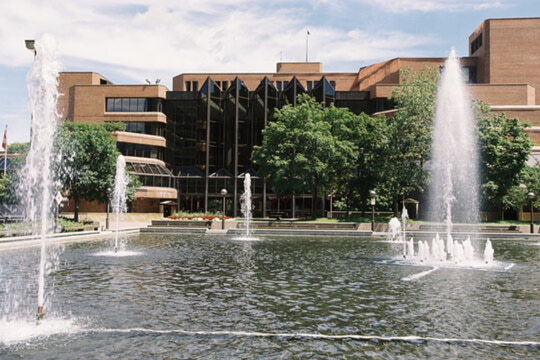Aylmer - Pontiac MNA reacts to Quebec Budget
André Fortin says Quebec is spending more but Quebecers are getting less
Sophie Demers
Quebec presented their $165 billion budget for 2025-2026 on March 25. The budget plans for a $13 billion deficit, one of the largest in the province’s history.
André Fortin, the Member of National Assembly for the Aylmer - Pontiac region and member of the Quebec Liberal party, said “This budget is a real head-scratcher for us because, while the Quebec government is running the largest deficit in its history at $13.6 billion, they're also announcing that they will decrease services in healthcare and education. Usually when you run a bigger deficit, it's because you're adding services, and this doesn't appear to be the case here. So, Quebecers would be right to ask the question, where's our money going? If we're indebting ourselves more and we're getting fewer services, something is not right with the way we are being governed by Coalition Avenir Quebec (CAQ).”
An example of this is the 2% increase in the education budget, which is not enough to cover the increase in salary that education professionals will receive this year, which represents a 2.5% increase. According to Fortin, this means less money for everyday services in schools for children as well as fewer specialized services in schools.
“The government is simply not investing what it should in the two priority areas that I hear about in this region, healthcare and education,” said Fortin.
The budget details $4.1 billion over five years to support the economy, which will include assistance for businesses affected by the tariffs. The assistance will come in the form of loans and financial support for initiatives that help shoppers identify Quebec products. CAQ said this was a strong response to the current economic tension in the US.
“It's a nice posture by the CAQ government to say we're in this situation because of the potential tariffs. But in truth, the $13.6 billion deficit is a structural deficit that has accumulated through years and years of poor decision making. When they came into power seven years ago, they were offered a $7 billion surplus. They have turned that into a $13.6 billion deficit,” said Fortin, highlighting that CAQ lost $270 million by investing in Northvolt and made other poor financial decisions through other failed investments, as well as tax cuts for “people who were in a very comfortable financial situation”.
Fortin says the province’s Liberal Party feels there was a missed opportunity to make more targeted investments in agriculture, especially with the US tensions making Canadians want to purchase local products and food.
For housing, the budget outlines $228 million over three years for maintenance of low-rental housing. The CAQ also plans to build 23,000 housing units by 2029. The Quebec government also commits to opening subsidized housing to 1,000 people over the next five years.
“For every housing unit that the government announces, we will support it. But the government is underestimating the need in terms of housing right now,” said Fortin, noting that the investments announced in the budget will not meet the needs of Quebecers. If there's any government investment that needs to be sped up, it's affordable housing.
Fortin also highlights that, with the increase in homelessness, the province has put more responsibility on cities and municipalities to find solutions, when it is Quebec’s responsibility.
For healthcare, there will be a 3% budget increase. Weeks prior to the budget announcement, the Minister of Health stated that a 3% increase would still mean cuts to the healthcare system that is already struggling.
“In this latest round of cuts they just completed, they let go nurses, nurse auxiliaries and social workers,” Fortin said. “The current CEO of the Centre intégré de santé et de services sociaux de l'Outaouais (CISSSO) said that, if we have to cut more, we will have to cut points of service, so local CLSCs, local vaccination clinics. In Pontiac, in Aylmer, in Gatineau, we just can't afford to lose any healthcare right now. The Outaouais is at ground zero for less-than-optimal healthcare in Quebec.”
The MNA says he will continue to fight for the region in Quebec City and calls on residents to make their voices heard. “If we want them to respond, to do better, to change their ways, we have to be vocal about it,” concluded Fortin.





